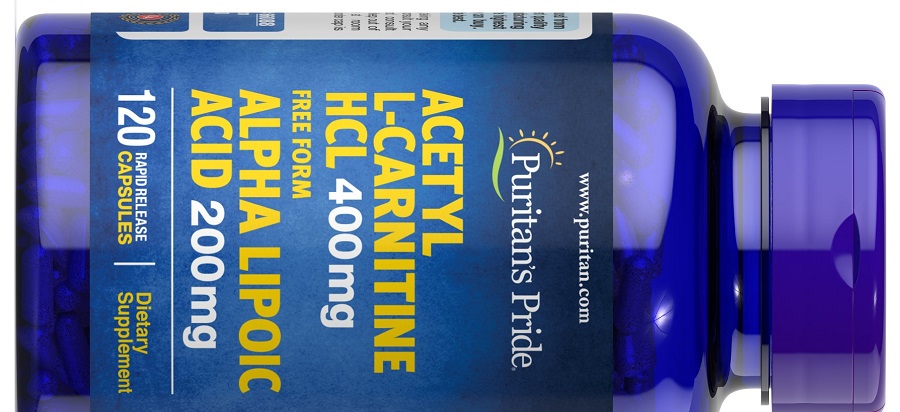Phosphatidylserine (PS) is a phospholipid that is found in high concentrations in the brain. It is an important component of cell membranes, and plays a critical role in maintaining the proper function of nerve cells. PS is also involved in the regulation of neurotransmitters, which are chemicals that transmit signals between nerve cells.
One of the main benefits of PS is its ability to improve cognitive function, including memory, attention, and concentration. Studies have shown that PS supplementation can improve memory and learning in older adults, and may be beneficial for people with conditions such as Alzheimer's disease and age-related cognitive decline. PS may also improve mood, anxiety and depression.
PS has also been found to be beneficial for athletic performance and recovery, it can help to reduce muscle damage, inflammation and oxidative stress.
PS is typically taken in supplement form, and is usually sourced from soy. It is available in various forms such as capsules, tablets, and powders. The recommended dosage of PS ranges from 100 to 300 mg per day. It is considered to be safe for most people when taken in recommended doses, however, people with pre-existing medical conditions or who are taking medications should consult a healthcare professional before taking PS.
It's worth noting that some studies suggest that phosphatidylserine is most effective when combined with other supplements such as omega-3 fatty acids, which are found in fish oil, and antioxidants, which are found in fruits and vegetables.
What are the benefits of phosphatidylserine?
The benefits of phosphatidylserine (PS) include:
-
Improving cognitive function: PS has been found to improve memory, attention, and concentration in older adults, as well as people with conditions such as Alzheimer's disease and age-related cognitive decline.
-
Reducing stress and anxiety: PS may help to reduce the effects of stress on the body and mind, and may improve mood, anxiety and depression.
-
Improving athletic performance: PS may help to reduce muscle damage, inflammation and oxidative stress, which can lead to improved athletic performance and recovery.
-
Supporting healthy brain function: As a phospholipid, PS plays an important role in maintaining the proper function of nerve cells and the regulation of neurotransmitters.
-
Lowering blood pressure: Some research suggested that supplementing with phosphatidylserine may lead to a decrease in blood pressure in people with hypertension.
-
Improving sleep: Studies indicate that supplementing phosphatidylserine may lead to better sleep quality and less sleep disturbances.
-
Supporting healthy aging: Some research suggested that PS may help to slow age-related cognitive decline and improve overall brain health.
It's worth noting that more research is needed to confirm these benefits and to understand the mechanisms by which PS exerts its effects.
How does phosphatidylserine work in the brain?
Phosphatidylserine (PS) works in the brain by affecting the communication between nerve cells. PS is an important component of cell membranes, and is involved in the regulation of neurotransmitters, which are chemicals that transmit signals between nerve cells.
Specifically, PS has been found to increase the activity of acetylcholine, a neurotransmitter that is essential for memory and learning. It also increases the release of dopamine and norepinephrine, neurotransmitters that play a role in mood, attention and focus.
PS also helps in the maintenance of the membrane fluidity, which is important for the normal functioning of the nerve cells. PS also has anti-inflammatory properties, which
can help to reduce inflammation in the brain and protect nerve cells from damage.
PS may also help to reduce the effects of stress on the brain by modulating the activity of the hypothalamic-pituitary-adrenal (HPA) axis, which is responsible for the body's stress response.
Is phosphatidylserine effective for improving cognitive function?
Phosphatidylserine (PS) has been found to be effective for improving cognitive function in some studies. However, it's important to note that results from studies have been mixed and more research is needed to fully understand the effects of PS on cognitive function.
Studies have shown that PS supplementation can improve memory, attention, and concentration in older adults, as well as people with conditions such as Alzheimer's disease and age-related cognitive decline.
For example, a study published in The Journal of Clinical Psychopharmacology found that PS supplementation improved memory and learning in older adults with age-related cognitive decline. Another study published in The Journal of Nutrition, Health & Aging found that PS supplementation improved memory, attention and concentration in older adults with mild cognitive impairment.
Additionally, a study published in the Journal of the International Society of Sports Nutrition found that PS supplementation improve cognitive function and reaction time in young healthy adults.
However, it's worth noting that not all studies have found a significant benefit of PS on cognitive function, and more research is needed to fully understand the effects of PS on cognitive function and to determine the optimal dosage and duration of treatment.
Can phosphatidylserine be used to treat conditions such as Alzheimer's disease?
Phosphatidylserine (PS) has been studied as a potential treatment for conditions such as Alzheimer's disease and other forms of age-related cognitive decline. Some studies have found that PS supplementation can improve memory and cognitive function in people with these conditions, however, the evidence is not conclusive and more research is needed to fully understand the effects of PS on these conditions.
While some studies have shown promising results, it's important to note that PS is not a cure for Alzheimer's disease or other forms of dementia, and it should not be used as a sole treatment for these conditions. It's also important to consult with a healthcare professional before taking PS or any other supplement, especially if you have a pre-existing medical condition or are taking other medications.
It's also worth noting that Alzheimer's disease is a complex and multifactorial condition and there is no single treatment that can cure it, current treatments focus on slowing down the progression of the disease and managing symptoms.
What are the recommended dosages of phosphatidylserine?
The recommended dosages of phosphatidylserine (PS) vary depending on the condition being treated and the specific product being used. It is important to follow the dosage instructions on the product label or as advised by a healthcare professional.
Generally, the recommended dosage of PS ranges from 100 to 300 mg per day. This dosage has been used in most of the studies that have been conducted on PS and cognitive function.
It's worth noting that the optimal dosage of PS may vary depending on the individual and the specific condition being treated. Some studies have used higher dosages of up to 600 mg per day, but this is generally considered to be the upper limit and should not be exceeded without consulting a healthcare professional.
It's also important to note that it's recommended to start with a lower dose and gradually increase it, as some people may experience stomach discomfort when taking PS at high doses.
It's important to consult with a healthcare professional before taking PS or any other supplement, especially if you have a pre-existing medical condition or are taking other medications.
What are the potential side effects of phosphatidylserine?
Phosphatidylserine (PS) is generally considered to be safe when taken in recommended doses, however, some people may experience side effects. The most common side effects of PS include:
-
Stomach discomfort: Some people may experience stomach upset, nausea, or diarrhea when taking PS.
-
Insomnia: PS may cause difficulty sleeping in some people, especially if taken too close to bedtime.
-
Headaches: Some people may experience headaches as a side effect of taking PS.
-
Low blood pressure: Very high doses of PS may cause a decrease in blood pressure, so people with hypertension should be careful when taking PS.
-
Allergic reactions: Rarely, some people may experience an allergic reaction to PS, such as hives or difficulty breathing.
It's worth noting that these side effects are generally mild and occur only in a small percentage of people. If you experience any side effects while taking PS, discontinue use and consult a healthcare professional.
It's also important to consult with a healthcare professional before taking PS or any other supplement, especially if you have a pre-existing medical condition or are taking other medications.
Is phosphatidylserine safe for long-term use?
Phosphatidylserine (PS) is generally considered to be safe for long-term use when taken in recommended doses. Studies have not shown any significant safety concerns with long-term use of PS. However, more research is needed to fully understand the long-term effects of PS on the body and brain.
It's worth noting that PS is a natural component of cell membranes, and it is found in high concentrations in the brain. It has been used for a long time and no serious side effects has been reported.
However, as with any supplement, it's important to consult with a healthcare professional before taking PS or any other supplement, especially if you have a pre-existing medical condition or are taking other medications. It's also important to follow the dosage instructions on the product label and not to exceed the recommended dosage.
It's also important to note that, as with any supplement, pregnant and breastfeeding women should consult with a healthcare professional before taking PS.
Can phosphatidylserine be used in combination with other supplements?
Phosphatidylserine (PS) can be used in combination with other supplements. Some studies have found that PS may be more effective when combined with other supplements such as omega-3 fatty acids, which are found in fish oil, and antioxidants, which are found in fruits and vegetables.
Omega-3 fatty acids, specifically DHA and EPA, have been found to have a positive effect on cognitive function and brain health, and may enhance the effects of PS.
Antioxidants, such as vitamin E, may also enhance the effects of PS by protecting the brain from damage caused by free radicals.
It's worth noting that more research is needed to fully understand the effects of combining PS with other supplements and to determine the optimal dosage and duration of treatment.
It's also important to consult with a healthcare professional before taking PS or any other supplement, especially if you have a pre-existing medical condition or are taking other medications.
What is the best form of phosphatidylserine to take?
The best form of phosphatidylserine (PS) to take depends on the individual and their specific needs. PS is available in several forms including capsules, tablets, and powders.
Capsules and tablets are the most convenient forms of PS as they are easy to take and are well-suited for people who have difficulty swallowing pills. The capsules and tablets can be taken with water or juice.
Powders are another option, they can be added to food or drinks and are a good choice for people who prefer to avoid taking pills.
It's worth noting that the form of PS is not as important as the quality of the product, it's crucial to make sure that the product is from a reputable manufacturer and contains a guaranteed amount of PS.
Another important factor is the source of the PS, it's commonly sourced from soy, but other sources such as sunflower and cabbage are also available. Vegetarian and non-GMO sources are also available.
It's also important to consult with a healthcare professional before taking PS or any other supplement, especially if you have a pre-existing medical condition or are taking other medications.


